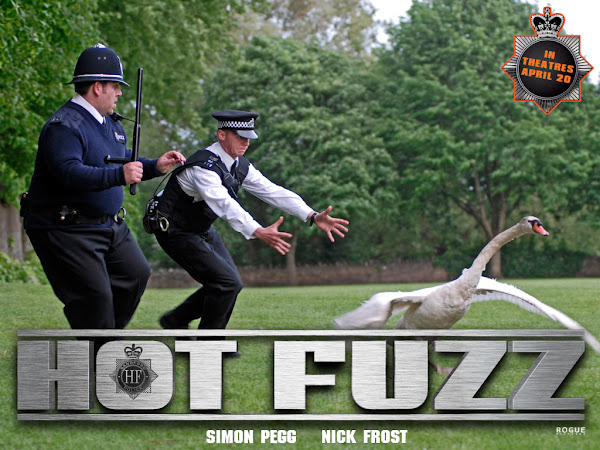Corpus Christi police want cameras to dash doubt

Todd Yates/Caller-times Corpus Christi Police Capt. Todd Green shows off the new digital camera system the department is testing for use in patrol cars. One of the biggest advantages of the system is that it does away with bulky VHS tapes and automatically uploads video to a server when the officer’s vehicle gets close enough to the police station, Green said.
CORPUS CHRISTI — Picture this: A man arrested on suspicion of drunken driving after hitting a stop sign refuses to take a breath test. He’s put in the back of the police car, where he’s loud, threatens officers and urinates on himself.
That picture, by a digital video recorder in the car, will document the case and could be used to help prosecute the man.
“Words can only say so much, but a picture is worth a thousand words,” said Sr. Officer Richard L. Olden, whose in-car camera captured the incident about a month ago. “The video is worth a million words. You can get the whole picture.
“It can be used for you or against you, but the video is there for that purpose,” he said. “It’s there for the officer and the public.”
Olden is one of about 15 Corpus Christi police officers testing a handful of digital cameras in their vehicles to evaluate options as the department looks to replace the VHS cameras it has been using for at least five years.
Assistant City Manager Oscar Martinez estimates a $1 million to $1.8 million price tag for the new cameras, funding for which is undetermined in a tight budget year.
“We haven’t even turned the first page in how it would be funded,” Martinez said.
The department has fewer than 30 VHS cameras, but about 150 vehicles in its fleet, Capt. Todd Green said. The squad used to have more cameras, but age and maintenance issues have diminished the number, and there have been technical problems with existing cameras. In fact, the March police chase during which an officer was hit by the suspect’s SUV produced no video footage, despite seven of the involved cars being equipped with VHS cameras.
Officials have said incidents like that present a need for new — and more — car cameras, Green said.
Police are hoping to equip the entire fleet with digital cameras and clip-on microphones for all patrol officers by as soon as fall 2009, Green said. They have been researching options for about a year and expect to make a recommendation to city officials in the coming weeks, he said.
He said he’s not aware of any discussions about funding, but sources could include grants, federal funds or remaining city budget balances.
Digital cameras would be less tedious for officers and their supervisors, who replace VHS tapes from a locked compartment in the police cars, Green said. The digital videos would be uploaded to a server, where files could be burned to DVDs by officers or investigators.
Officers could better testify to a jury by showing a video, Green said.
“It’s an expenditure that has a potential to almost pay for itself when it comes to lawsuits and things like that,” he said. “There would be definitive documentation of what happened.”
The officers who have been testing the systems have vehicles equipped with two cameras, one on the dashboard and one facing the backseat. Those cameras constantly record to a hard drive in the patrol car, and audio is recorded once the officer activates the car’s emergency or overhead lights, Green said.
Once an officer nears the main police station, the video and audio automatically upload to the server, he said.
Sgt. Chris Lynch, a traffic officer who has used a VHS camera in his police car for about eight years, said a digital system will advance the department and help document cases.
“It’s going to be neat to be with the times,” Lynch said. “I don’t think most of us even have VHS players in our houses.”
BY THE NUMBERS
The Corpus Christi Police Department is looking to equip its fleet with in-car digital video cameras.
30
Minutes to download video from one officer’s shift
40
Gigs on hard drive of car computer
40
Hours of video that can be stored on the car computer’s hard drive
90
Number of days until files are erased from department server, unless used as evidence
150
Estimated number of cars in department’s fleet
Fewer than 30
Number of working VHS cameras currently in vehicles
15
Estimated number of officers
testing digital cameras
$1 million
to $1.8 million
Estimated price tag for digital cameras
Source: Corpus Christi Police Department, city of Corpus Christi
(5) User Comments:
This is a basic crime fighting tool. It is unconscionable that the CC Police don't already have these cameras in their cars. If I were on a jury and a dash-board video was not presented as evidence when I felt that there should have been one, I would assume that it wasn't there because the prosecution didn't want me to see what really happened.
I understand that people often confess and plead guilty after seeing what they did on video. How much does this save in court costs?
Whoa!!
1 Million to 1.8 Million to facilitate this plan? Lets do some math.
If we use a figure of 300 cars and the lower figure of $1 million, that means this plan costs about $3,300 per vehicle. Use the higher estimate and the price shoots up to $6,000 per car!!!
A modern 2 camera digital video recording (DVR) system with a hardened car PC can be had for around $1500 installed!
I'd love to see the request for proposals (RFP) for this project.
in response to 241503
My friend, the similarity between your home digital camera and dvr system and police in car video system ends with the camera and dvr that is in the unit. The thousands of hours of video that will be generated on a DAILY basis will exceed what a home dvr system is capable of storing. I t must be uploaded either by removing the hard drive in to a digital storage system capable of storin husge amounts fo data and that all video recorded must be maintained for FIVE YEARS by state law and public dislcosure requirements. To do it manually for police department the size of CCP is huge so they want to use wirless transmission to do that, so thier is addtional costs for high speed wirless capability to upload thousands hours of video into a storage system. It must be capable of handling several units at once all over the city, from flour bluff to callallen and the substation on Corona.
This no mickey mouse undertaking. But given the number of complaints against officers, 99.00% of which are false or not sustained, these cameras do reduce the incidence of misconduct, complaints of mistreatment are easily looked in to as it records audio and video so conversations in homes where often family disputes bring complaints on officers can also be recorded.
But make no mistake it will also increase the work load for civilian staff when prosecutors and defense attorneys not to mention the news media and just plain citizens began to demand copies of video for trials and lawsuits or television. It will be automatically requested and the workload will go up. It is best to give the prosecutors office acess to the video retrieval system and let thier staff recall it. the maintnence cost and replacement schedule is five years an increase in It Staff as well a civilian clerks to handle the request has not been taken into consideration. To pay for the hardware system is one thin it is theongoing costs that must be covered as well.
in jim wells county alice, texas the sheriff gave his the secretaries 3 million in bonus from money seized from passerbys on highway.. maybe they can raise a mere 1.8 million from seizing vehicles and money here? putting it to better use...
Absolutely, there ought to be cameras everywhere anywhere a police officer goes. The cameras ought to be in the cars. The cameras ought to be pointed outside the cars. Most importantly, police guns ought to be equipped with cameras. These cameras are not expensive and they provide an important protection.
By the way, in my experience, the videotapes work as often or more often in favor of the Defendant as the Prosecution. The police officer will write up he report stating that the guy is wobbling all over the place and can barely stand. The video shows a guy standing perfectly straight and completely coherent.
Cameras are as much for the protection of the public as the police. The public makes false complaints against officers, but officers make false complaints against the public. There is a big difference though. When the public makes a false complaint, it usually amounts to nothing. When a police officer makes a false complaint, the member of the public is immediately arrested.
No officer should be allowed to leave the station without a camera check. If an important event is not recorded because the camera is not working (a common police lie), a presumption should exist against the cops. There is no reason the truth should not be known. Cameras can be made to lie, but they lie a lot less than people and their lies usually can be determined.




You must follow these rules in order to post comments: